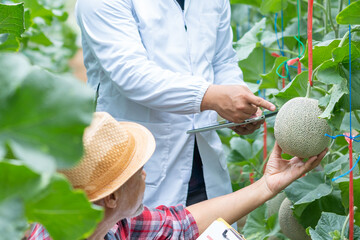Here are 10 things you should know about an Agricultural Inspector job:
- Job Description: An Agricultural Inspector is responsible for ensuring compliance with agricultural laws, regulations, and standards related to farming, food safety, and animal health. They inspect farms, processing facilities, and other agricultural operations to ensure compliance with these regulations.
- Education and Training: Most agricultural inspector positions require a bachelor’s degree in agriculture, biology, or a related field. Some positions may also require additional specialized training in areas such as food safety or pest management.
- Knowledge of Agricultural Practices: Agricultural inspectors need to have a strong understanding of agricultural practices, including crop production, livestock management, and pest control. They should be familiar with various farming techniques and be able to identify potential issues or violations.
- Regulatory Compliance: Agricultural inspectors enforce federal, state, and local laws and regulations pertaining to agriculture. They must have a thorough knowledge of these regulations and stay up to date with any changes or updates to ensure compliance.
- Inspection and Documentation: Inspections are a crucial part of the job. Agricultural inspectors visit farms and facilities to assess compliance, collect samples for testing, and document their findings. They need to be detail-oriented and proficient in maintaining accurate records.
- Communication Skills: Agricultural inspectors interact with farmers, processors, and other stakeholders in the agricultural industry. They must be able to effectively communicate regulations, explain violations, and provide guidance on corrective actions. Strong interpersonal and communication skills are essential.
- Problem-Solving: Agricultural inspectors encounter a variety of issues during inspections, such as pest infestations, water contamination, or improper handling of agricultural products. They need to analyze problems, evaluate potential solutions, and make informed decisions to address compliance issues.
- Physical Demands: The job of an agricultural inspector often involves working outdoors and conducting field inspections. This may require walking long distances, standing for extended periods, and working in varying weather conditions. Physical fitness and stamina are important for this role.
- Analytical Skills: Agricultural inspectors need to assess complex situations and make judgments based on regulations and guidelines. They must be able to analyze data, interpret test results, and determine the appropriate course of action in response to violations or non-compliance.
- Continuous Learning: The field of agriculture is constantly evolving, with new technologies, regulations, and best practices emerging. Agricultural inspectors need to stay updated on industry trends, attend training sessions, and participate in professional development activities to enhance their knowledge and skills.
Join 'Farmers Mag' WhatsApp Channel
Get the latest Farming news and tips delivered straight to your WhatsApp
CLICK HERE TO JOIN






